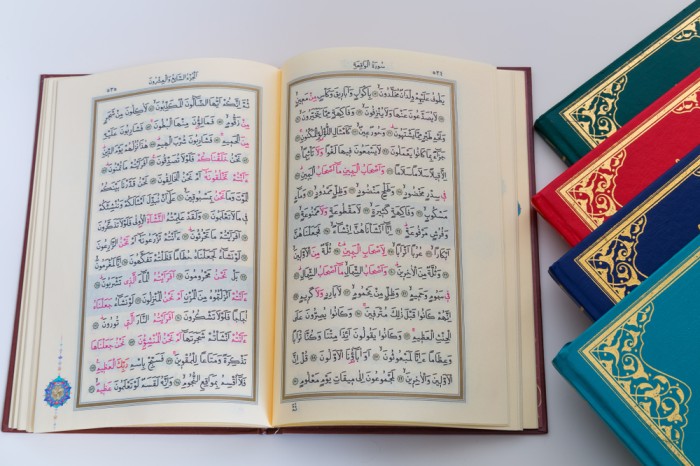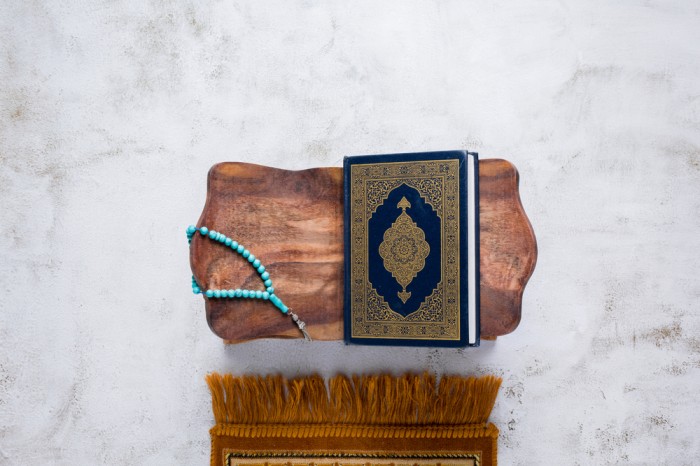What are Five Pillars of Islam?
What are the Five Pillars of Islam?
Islam obligates five basic principles on Muslims. These five basics have been named five pillars of Islam in a hadith of Bukhari & Sahih Muslim books. Every Muslim must endorse and accept these five pillars of Islam by heart. We will be discussing briefs of these pillars here:
1- Shahadah
Shahadah means testimony. Every Muslim must testify the acceptance of only one God, and Prophet Muhammad (PBUH) is the messenger. The words of Shahadah say: "There is no God but Allah, and Muhammad (PBUH) is the Messenger of Allah."
Muslims cannot enter Islam without reciting these words. This is the first of the fundamental pillar of Islam. It is a critical pillar, and that is why it is repeated in five times prayer every day.
Worship is only for Allah
It is vital to accept Allah's existence as only one. Allah is the creator of the heavens and earth. He is the only authority that controls the entire universe. All of the creatures are the servants of Allah, and no one can be called God other than Him.
Prophet Muhammad (PBUH) is the final messenger
The second part is the firm belief in Prophet Muhammad (PBUH). Allah has sent many Prophets to many nations, but Prophet Muhammad (PBUH) is Allah's last Prophet, and there can be no Prophet after Prophet Muhammad (PBUH).
2- Salah
Allah has obligated five times prayer to every Muslim. This was the gift of Allah Almighty to Prophet (PBUH) during the famous incident of mairaaj. The Prophet went to the heavens, met other Prophets, and spoke to Allah himself.
It has been recorded that Allah obligated fifty prayers in a day at first. However, Prophet requested Almighty to reduce the number of prayers until it was reduced to five times prayer.
3- Zakat
Islam obligates annual charity on Muslims. It applies to every Muslim who has savings or possessions to the level mentioned in Islam. The minimum standard has been set in Islam and is known as nisaab. This standard is placed on the prices of silver and gold. The amount of gold is 85 grams, while silver is 595 grams. Whoever has this much silver or gold must pay 2.5% of total wealth in zakat.
Islam believes in equal distribution of money through zakat.
4- Fasting (Sowm)
Fasting is the fourth pillar of Islam. Muslims must observe fast during the entire month of Ramadan of the Islamic calendar. A fast means to refrain yourself from drinking or eating the whole day. A fast starts from the prayer of Fajar and ends with the blessing of Magrib.
Fasting isn't practiced only in Islam. It has been the practice of Christians as well. Christians also observe fasting at specific times of the year like Muslims. The primary purpose of fasting is to teach tolerance. It is also a great way to acknowledge the blessings of Almighty on Muslims.
Ramadan is a month celebrated for good deeds and additional prayers. Allah chains Satan in this month, and Almighty rewards Muslims multiple times on good deeds in Ramadan. Muslims also perform many extra prayers this month.
5- Hajj (Pilgrimage)
The visit to Kaabah and the Hajj in the house of Allah Almighty is the final pillar of Islam. It is a compulsion only on the ones who can afford to visit Kaabah in their life. Muslims desire their entire life to be blessed with this opportunity. Among billions of Muslims on earth, very few millions have the chance to perform Hajj every year.
The preliminary ruling on pilgrimage is the physical and financial capability to travel to Kaabah. This is not a compulsion on everyone. Usually, Muslims save their entire life to afford the visit of Kaabah and perform this sacred duty.
Except for Shahadat & Salah, the rest pillars of Islam might have exceptions. Zakat is applicable when wealth is accumulated at certain levels. Pilgrimage is relevant to financial & physical capability, while fasting can be missed during traveling or sickness. Islam is the religion that accommodates everyone. This is why even the five fundamental pillars have pre-requisites and are not forced on anyone who can't afford to practice them.
What are my obligations towards Another Muslim?

What are my obligations towards Another Muslim?
Islam obligates the rights of one Muslim to another. This leads to a sense of care in a Muslim society. Among many of the responsibilities, six are the most vital rights. Prophet Muhammad (PBUH) said, "A Muslim has six rights over another Muslim. When you meet a Muslim, say salaam. When he calls upon you, go to meet him. When he asks you for Goodwill, say good to him. When a Muslim sneeze and says ٱلْحَمْدُ لِلَّٰهِ, say to himيرحمك الله . And when a Muslim gets ill, inquire about his illness. And for the last, when Muslim dies, attend the funeral".
These six obligations will be discussed herein light of the hadith of Sahih Muslims.
Responding to Salaam:
Greeting Muslims with salaam is essential. It is one of the basic ways of creating affection among Muslims. Allah Almighty says in Holy Quran to respond to the greeting of your Muslim brother is a better way or at least in the same way. You can greet back in the same words and choose the better way to greet back your fellow. It means if a person says "اسلام علیکم" to you, then your better answer should be" وعلیکم السلام ورحمۃ اللہ. " It would be acceptable to say again وعلیکم السلام only. However, you would sin if you completely ignored your Muslim brother's greetings.
Visiting the Sick:
The second obligation is to visit the ill one. This highlights Islamic values of taking care of others. This obligation makes sure that an ill person is not left alone. Islam obligates them to visit the patient and pray for their health. This acts as a lot of encouragement for the person in grief. It makes the patient happy that someone cares about the illness. If the patient needs someone to take him to the doctor, the visiting person can be a lot helpful to the one in need.
Attending funeral prayers:
The third obligation is to attend the funnel of Muslim fellows. This is the Muslims right after the death of the fellows. You can think of this obligation as a reminder that everyone has t leave this world at a definite time. You must attend the funeral prayer of your fellow Muslim.
Accepting the invitations:
You are obliged to accept the invitation of your Muslim brothers. The importance of this obligation can be checked in the following hadith mentioned by Ziyad bin Anam Al-Afriqi mentioning the importance of accepting the invitation. Ziyad bin Anam Al-Afriqi said that they were traveling through the boat, and their boat confronted the boat of Hazrat Abu Ayyub Ansari. It was lunchtime, and we invited Hazrat Abu Ayyub to lunch. Hazrat Abu Ayyub said that I have a fast, but still I will accept your invitation because Holy Prophet (PBUH) is obligated to accept the invitation.
Responding to sneeze:
The fifth obligation is to say "یرحمک اللہ" when a Muslim fellow sneezes and says ٱلْحَمْدُ لِلَّٰهِ. This obligation teaches that you should ask for Almighty forgiveness on your fellow behalf. This duty is the basis of brotherhood in Islam. Islam teaches that Muslims should feel each other pain and seek forgiveness for each other from Almighty.
The feeling of Goodwill:
Islam obligates the feeling of Goodwill for each other. It is the duty of every Muslim not to misguide his fellow. Muslims should not be involved in flattery or hypocrisy towards others. They are also obliged not to give any bad advice to fellows. On the other hand, Muslims also should not gossip on the backs of their fellow brothers. Good dealing and Goodwill is required from everyone even if their fellows cannot hear them.
Final Conclusions:
Islam is no doubt a religion of harmony and peace. It formulates principles that bind Muslims together. The above rights ensure that Muslims share each other's pain and are present when their fellow Muslims are grieving. Our religion promotes a society-based culture where everyone feels the pain of others. Fulfilling these rights ensures that you have a strong bonding with your fellow Muslim brothers.
Do I Commit Sin When I Recite Holy Quran without Tajweed?

Do I Commit Sin When I Recite Holy Quran without Tajweed?
Holy Quran was revealed during the times of Arabs. The reciters were native to the language of the Holy Quran. However, with the passage of time, Islam became the most followed religion all over the world. Muslims from different countries with different mother tongues started reciting Quran in their own pronunciations. This led to a lot of complications as Arabic words change their meanings with pronounced incorrectly.
Scholars sorted out the way through Tajweed. There is still a different school of thought about whether Tajweed is compulsory or not. Let us find out about the requirement of Tajweed for reciting the Holy Quran discussed below:
Definition of Tajweed
Tajweed means doing well or doing with perfection. Tajweed actually rules that are required to recite Holy Quran perfectly. Tajweed makes recitation quite beautiful as it implements the rules of Arabic pronunciation in every verse.
Is Tajweed an Obligation?
Religion does not obligate tajweed. Therefore, you are not committing a sin if you are reciting Holy Quran without the knowledge of tajweed. It is all dependent on your preference and efforts towards recitation. If you want to recite Quran, why not do it in the way of the Holy Prophet?. Perfection in your recitation can only be achieved by learning tajweed. However, it is not a compulsion.
Role of Tajweed in Islam
You may think that if there is no requirement of tajweed in our religion then what importance it has in the religion. Tajweed is called Fard al Kifaya in our religion. In other words, it is the duty of one in a group of people. If in the Muslims community, only one Muslim has learned tajweed for reciting Quran, the Islamic duty has been fully performed.
Does Poor Tajweed Lead to Change of Meanings?
Yes, it is a sin if we intentionally recite Holy Quran in the wrong way. But if you are putting efforts to recite Quran with just basic knowledge and make errors in it, you are not committing a sin. Making errors in recitation due to lack of tajweed understanding is not going to make you a sinner. It is also not necessarily true that poor tajweed leads to a change of meanings of every verse. If you have learned the basics of Noorani Qaida or Arabic pronunciation, you will be fine to recite Holy Quran in the correct ways.
How Holy Quran Mentions Tajweed?
Holy Quran does not mention the compulsion of Tajweed in verses. However, it recommends reciting Quran very carefully & understandably. The Verse of Surah Muzammil mentions: “Or add to it, and recite the Qur'an with measured recitation.” (Surah Muzammil).
Why Should I learn Tajweed?
We are now quite clear about the requirement of learning Tajweed is not essential in our religion. You may be thinking that why it has still a crucial role in the recitation of the Holy Quran. It is because due to the following factors:
- Perfects the Recitation: You might find it quite difficult to differentiate between pause and stop rules when reciting Quran. Tajweed works on these aspects and makes recitation more convenient for you.
- Helps Avoid Errors: Some words change meaning in a different way of pronunciation. Though it is not a sin for Quran learners, why not put some effort to avoid mistakes in the holy Quran. Tajweed ensures error-free recitation.
- Helps Memorizing: tajweed helps a lot in memorization. You know where to connect verses and where to break them.
Can I enroll in Tajweed Class?
We put a lot of effort into schooling our children. However, we don’t do much on their recitation styles. Encouraging children towards Quran recitation is not the only duty of parents. Children should know the recitation with correct pronunciation rules. This will make children not only learn the recitation but they will be able to recite in the most beautiful manners.
Our online tajweed course is just a few clicks away. We take pride in offering the services of both native Arab & non-native teachers for learning tajweed from the comfort of homes. You can get a free trial of our demo tajweed class today. Our tajweed classes are specially designed to teach the tajweed in the most engaging manners.
Should I believe in Angels?

Should I believe in Angels?
Angels are creatures that human beings cannot see. Allah has created angels from light, and they spend their entire life obeying Allah Almighty. Angles are given special powers to do their tasks. These powers are different for different angels. Allah Almighty mentions in Verse 21:19-20 about angels in Holy Quran that angels are near to Allah Almighty and glorify & worship Almighty night & day long.
The number of angels is not known. The idea of their abundance can be made from the hadith of Prophet Muhammad (PBUH). Prophet (PBUH) mentioned that during the night of Miraj, Prophet witnessed seventy thousand angles enter Bait at Mamoor. This hadith has been mentioned in Al-Bukhari & Muslim books.
Do Angels have Physical Forms?
Some people deny the physical existence of angels. However, the Quran & Hadith proves that angels exist physically and have bodies. Allah Almighty mentions angels in Verse 35:1 of the Holy Quran that Allah made angel messenger with two, three, or four wings.
Prophet Muhammad (PBUH) mentions angels in a hadith that When Allah likes any slave, he calls Gabriel & says that Almighty loves a specific person and therefore loves him. Gabriel loves him, and then he says to inhabitants of heaven that Allah loves that person, so they also love him. Therefore inhabitants over heaven start loving him, and then a similar love is granted to that person by the people on earth. This hadith has been mentioned in Al-Bukhari.
It is very clear from above that angels do have physical forms.
Can Angels Change Shapes?
The angles can take many shapes by order of Allah Almighty. Angles have been reported to take the man shape to deliver Allah's message to his beloved servants.
Gabriel was sent in man form to the mother of Jesus Christ, Maryam, as mentioned in Holy Quran. Gabriel also delivered Holy Quran to Prophet Muhammad (PBUH).
In a Hadith, Prophet mentioned that Gabriel was sent to him in the shape of a man with dark hair wearing white clothes while the Prophet was with companions. Gabriel sat in front of the Prophet and questioned Prophet about Islam, Iman & Ihsaan, and the signs of last times.
Prophet later mentioned to his companions that this was angel Gabriel who had come to teach the religion of Islam.
Specialized Duties of Angels
Special tasks of these angels have been found out in light of the Holy Quran & Hadith:
Angel Jibreel: Gabriel was made responsible for conveying Allah's message, orders & revelations to Holy Prophet.
Angel Mikaa‘eel: Mikaeel is the angel of nutrition. The responsibility of the angel is to distribute blessings of rainfall & vegetation.
Angel Israel: the angel is responsible for calling upon the day of judgment through blowing the trumpet that would seize every life on earth.
Angel Malak-ul-Mawt: the angel of death is responsible for collecting souls from bodies at the definite time of death.
Angel Maalik: the angel responsible for guarding the fire of hell.
There are other angels' responsibilities that write the destiny of living beings while in their mothers' wombs. They write the life terms, deeds and write on being of pious or sinful nature.
Angels are also appointed on the shoulders of every human being to document their good & bad deeds. The angel of the right should document good deeds while the left documents bad ones.
Other after-death angels come to the grave to ask questions from the dead people of their religion and their faith in the Prophet (PBUH).
What are Muslims Beliefs on Angels?
Muslims have firm faith in Angels. They have the following beliefs on angels:
1. Muslims believe angels exist.
2. Muslims believe angels with names and those whose names are not disclosed to them
3. Muslims believe in the powers & forms of angels discussed in the Holy Quran & Hadith. Prophet (PBUH) mentioned that he witnessed Gabriel in original form with six hundred wings.
4. Muslims believe in their actions told in Holy Quran. Like they worship day & night in complete obedience to Allah Almighty and perform tasks upon his will.
How Believing Angels Affects Me?
Believing in angels believes in Allah's command about angels' presence. We understand that Allah has infinite power & control over the entire universe. Almighty can create a lot of powerful creatures that are a thousand times more obedient to Almighty. The lord has an infinite number of servants to serve him, and his servants are not only living beings on earth. We also know Allah's love for humanity and how he has appointed angels to protect human beings and document their deeds.
Belief in angels is the foremost requirement of our religion. A Muslim cannot step into Islam without having a firm belief in the presence of angels.
13 Good Deeds to Wipe Away Bad Deeds

13 Good Deeds to Wipe Away Bad Deeds
Allah Almighty forgives every sin of believers when they seek His forgiveness. The doors of forgiveness are never shut till the death. Allah Almighty encourages reverting to the right path even if his servants have committed loads of sins. In verses of Surah Zumar of the Holy Quran, Allah says never to despair from his mercy. The doors of mercy are always open when we repent before Almighty with a true heart
Some of the acts are liked by Allah Almighty so much that He wipes out the sins of anyone who performs them. Here is a brief list of these righteous actions as according to Hadith:
1- Remembering Almighty during Adhan
Holy Prophet (PBUH) said that when someone says these words during Adhan time, all of them committed sins will be washed out.
I bear myself as a witness that there is no one worthy of worship except Allah Almighty and I endorse Muhammad (PBUH) as his special servant and messenger. I accept Allah Almighty as my master and Islam as my religion and Muhammad (PBUH) as the last Prophet (Sahih Muslim).
2- Perfection of Ablution
Prophet (PBUH) said that when someone perfectly performs ablution, all of his committed sins will leave his body even from under his fingernails due to the mercy of Allah. This hadith is reported by Uthman ibn Affan.
3- Performing Five Prayers
Prophet PBUH asked his companions that if there was a river just in front of your door and you are taking bath from it five times a day, do you assume that there will be traces of dirt on the person?. The companions replied with not a single trace would be possible. The Prophet PBUH said that this is how sins are removed through five times prayer. This hadith is reported in Ṣaḥīḥ al-Bukhārī 505, Ṣaḥīḥ Muslim 667
4- Isteghfaar during Nighttime
The hadith about forgiveness during the night has been reported by Abu Huraira, the companion of the Holy Prophet (PBUH). Does Allah say that when the night reaches the third part, the Almighty asks that Is there anyone who seeks his forgiveness or demands anything from Him? Almighty asks mankind to request his forgiveness so Almighty can forgive his servants. This hadith is reported in Sahih Al Bukhari: 8.333.
5- Acts of Charity
Allah Almighty mentions in Quran that those who perform charity will be rewarded generously for their good deeds. Prophet PBUH urged Muslims to keep doing charity to avoid evil. Prophet PBUH said that it is the charity that becomes an obstacle for the calamities coming in your way. This hadith has been reported in Tirmidhi.
6- Preparing for Fridays
Prophet PBUH said that whoever prepares for Friday in the best manner, his sins between two Fridays time will be forgiven. The actual words of hadith mention that if someone takes a bath then cleans himself completely & further oils his hair and applied perfume, he sets out for the mosque, don’t rush to separate two persons to make his seat then performs prayers and observes silence while listening to prayer leader, he would be free from his all sins between that Friday and next Friday. This hadith is reported in Al-Bukhari.
7- Fasting in Ramadan
Prophet PBUH said that whoever fasts with sincere faith in the month of Ramadan in pursuit of reward from Allah, his previous sins would be forgiven.
8- Praying on Al-Qadr
Prophet PBUH said that whoever offers prayers on Shab Qadr with sincerity of faith in pursuit of Allah’s reward, his previous sins would be forgiven.
9- Praising Allah Almighty
The significance of tasbeeh has mentioned in the hadith reported by Abu Hurayra, the companion of Holy Prophet PBUH. Prophet PBUH said that when someone recites Glory is for Allah and All Praise is for Him (Subhana’llah wa bi-hamdihi in Arabic) for hundred times in a single day will remove all his sins even if they were lot & excessive like a foam of the sea.
10- Fasting on Aashura
Prophet PBUH highlighted the importance of fasting on the tenth day of Muharram while saying that Allah will forgive the sins of the previous year for someone who would fast on the day of Ashura.
11- Fasting on Arafah
The second day of Hajj occurs on the 9th of Dhu al-Hajj. This is called the Day of Arafah. Prophet PBUH said that whoever fasts on the day of Arafah will have his sins forgiven for the previous & next year.
12- Bearing Fever
Prophet PBUH highlighted the forgiveness of Allah during fever in the hadith reported by Jabir, the companion of Prophet.
Prophet visited Umm Musaiyyab and asked about her ailment & weakness leading to shivering. She replied that it is the fever. Prophet PBUH mentioned to her that do not think ill of fever as it removes the sins in a similar way like a furnace removes dirt from iron. This hadith has been reported in Sahih Muslims.
13- Bearing Diseases
Hadiths about forgiveness of Allah during ailment have been reported by Abu Huraira and Au Sa id. It mentions that a Muslim when gets stricken with ailment, hardships & discomforts, grief, or even mental worries, it acts as a reparation for his sins.
Allah Almighty has opened the doors of forgiveness to believers. There are numerous ways to earn forgiveness for our sins. It is quite easy to seek Almighty forgiveness if we have a sincere faith in returning to the right paths.






